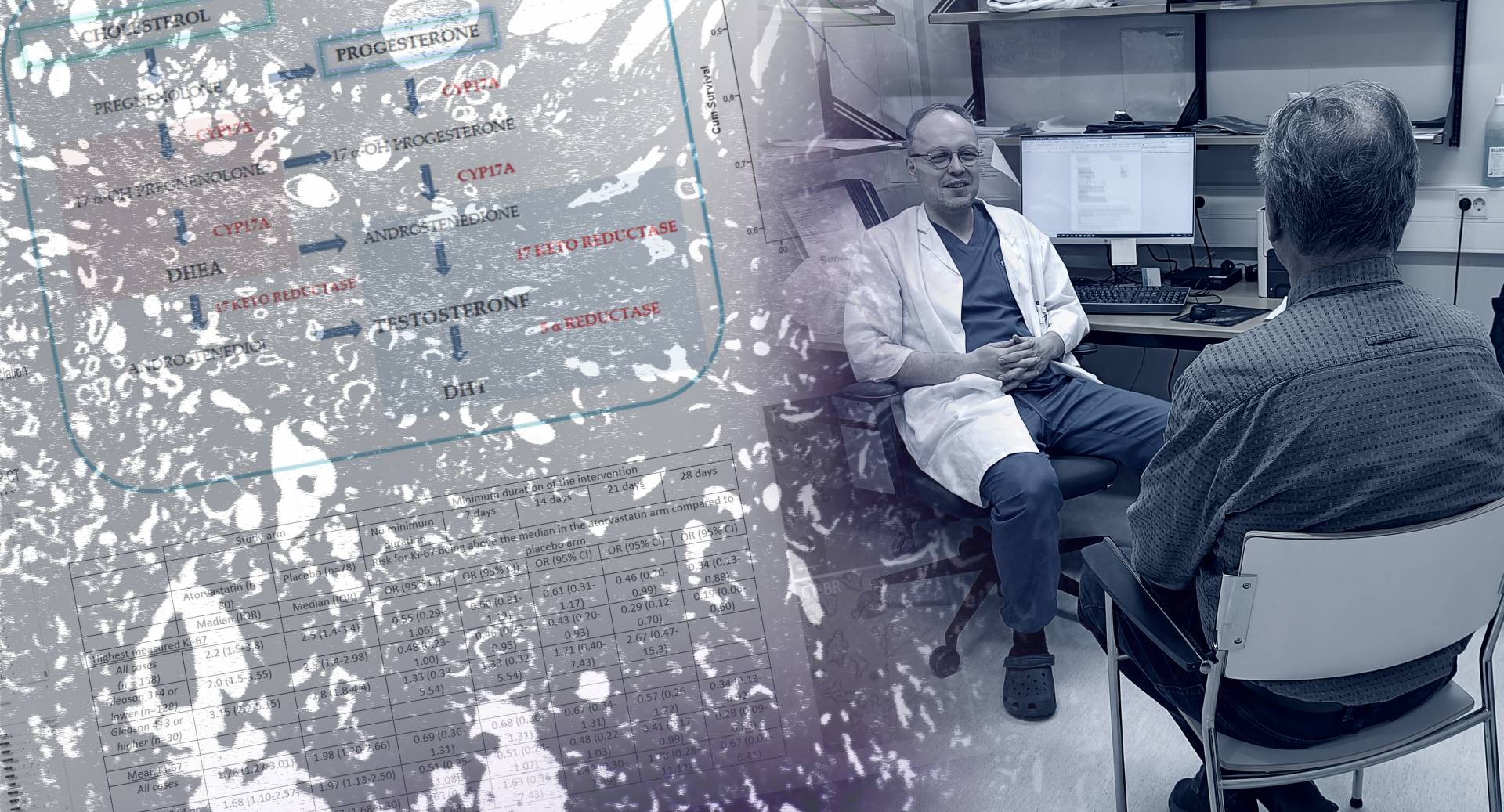
Our approach neither recognises nor follows traditional research field boundaries:
- We use cell culture models to evaluate prostate cancer cell metabolism at various stages of disease development and treatment resistance. We focus especially on role of lipid metabolism and it’s cross links with androgen metabolism, but study also other metabolic routes. Further, we use the cell models to evaluate how established drugs, like cholesterol-lowering statins may affect prostate cancer cells
- We perform epidemiological studies using population-based datasets to evaluate how usage of drugs that appeared promising in cell culture models associate with prostate cancer risk and prognosis at population level. This gives further proof of clinical significance of the in vitro findings. And vice versa, drugs that appear to have a promising association with prostate cancer outcomes in epidemiological studies are taken for closer evaluation in cell culture studies
- We perform clinical trials for drugs that have a beneficial effect against prostate cancer metabolism in cell culture studies AND have demonstrated a promising association with favorable disease outcomes in epidemiological studies. Clinical trials serve as the final test of given drug’s efficacy in clinical management of prostate cancer patients
Research news
-
Urologist Henry Haapiainen, MD, succesfully defended his PhD thesis on 23.8.2024. In his thesis Dr. Haapiainen compared 3D-assisted and robot-assisted laparoscopic radical prostatectomy techniques in treatment of prostate cancer. He demosntrated, that 3D-assisted operation can be learned as quickly as the robot-assisted technique, and it has comparable oncological and functional outcomes after surgery. Therefore, it is a valid option to be used in surgical treatment of prostate cancer, while costs of the equipment is much lower compared to the robot-assisted technique.
-
Resident of internal medicine, Roni Joentausta, MD succesfully defended his thesis on statins, metformin and prostate cancer survival and risk of erectile dysfunction after radical prostatectomy on 30.8.2024. His work showed that men using cholesterol-lowering drugs statins have better survival after surgical treatment of prostate cancer compared to men not using statins. Similar, but weaker association was observed also for antidiabetic drug metformin. These drugs may target metabolic routes that are important for prostate cancer, and they should be evaluated further as novel ways to prevent prostate cancer progression.
-
We are happy to report that ESTO2, the first-ever phase 3 randomized, placebo-controlled clinical trial testing whether atorvastatin improves efficacy of androgen deprivation therapy against metastatic or high-risk recurrent prostate cancer, has reached 50% of it’s recruitment target, 200 men. The study is led by TAYS Cancer Center, and it is ongoing and active in four countries; Finland, Denmark, Norway and Estonia. We expect to finish the recruitment in the next 2,5 years.
